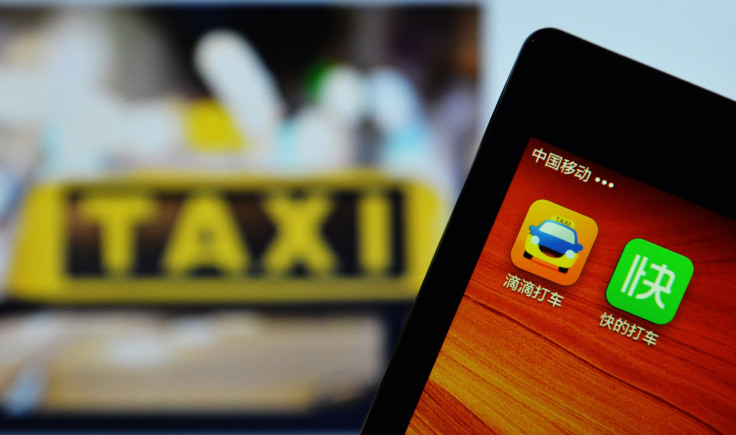Taxi Drivers In China’s Shenzhen Protest Ride-Hailing Apps, 3 Arrested

Three people were arrested in the southern Chinese city of Shenzhen as taxi drivers launched a city-wide strike against ride-hailing apps Monday. The suspects were apprehended for allegedly damaging commercial property during the protest, local media reports said.
Taxi drivers refused to give rides for most of Monday, South China Morning Post reported, leaving the city short of cabs particularly at the airport and border checkpoints. Drivers were complaining that ride-hailing apps like Uber and local competitor Didi Kuaidi hurt the traditional taxi business.
“Several hundred taxi drivers gathered outside a citizen centre on Monday morning” in protest against livelihood problems, the Post said, citing a local government official. Drivers were also seen gathered at Longhua new district as well as at the Luowu border checkpoint.
The collective protest was believed to have been triggered by a recent online post, which called on drivers to go on strike as app-powered cabs have challenged their livelihood since October 2014.
“Now we work 10 to 12 hours a day but earn only a little more than 100 yuan ($15.26) each day. Vehicles without commercial licenses are seen everywhere and yet the government is doing nothing about it,” the statement read.
According to financial magazine Caixin, Shenzhen’s cab drivers were also protesting surging taxi rental rates which could reach up to 400 yuan ($61.05) a day.
Chen Qifu, a taxi driver in Shenzhen, said that he had struggled to sustain a living due to the competition from drivers using mobile apps such as Uber and Didi Dache, according to the Standard, a Hong Kong-based daily.
"I work 12 hours every day and earn around 4,000 yuan ($610.6) a month," he said. "I can get the same pay in another industry, so if the government does not legislate to help us I will consider looking for another job."
According to reports, police at the protest were seen persuading taxi drivers to return to work as Shenzhen's city officials mobilized other modes of public transport to cater to people stuck at airports and border checkpoints.
Mainland China has cracked down on ride-hailing apps, enacting a law that bans private cars from offering rides via apps across many of its cities and raiding Uber's offices in Chengdu and Guangzhou in April 2015.
App-based transport services have drawn similar protests in many cities across the world in the past year. Last week, taxi unions in Brazil’s largest city Sao Paulo went on strike, complaining that a government plan to even the playing field between app-powered cabs and traditional taxi operators was not enough. In Europe, ride-hailing apps were banned in many cities across France in June 2015 after protests by taxi unions turned violent.
© Copyright IBTimes 2025. All rights reserved.





















